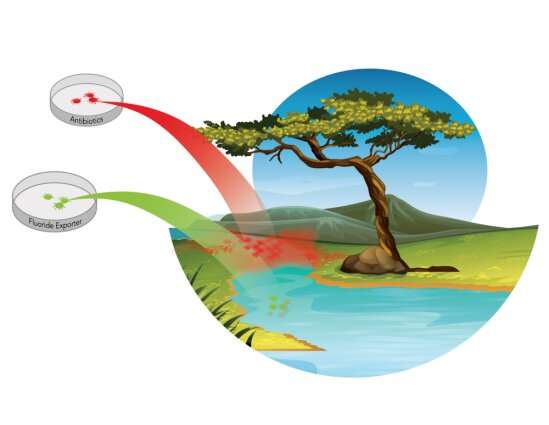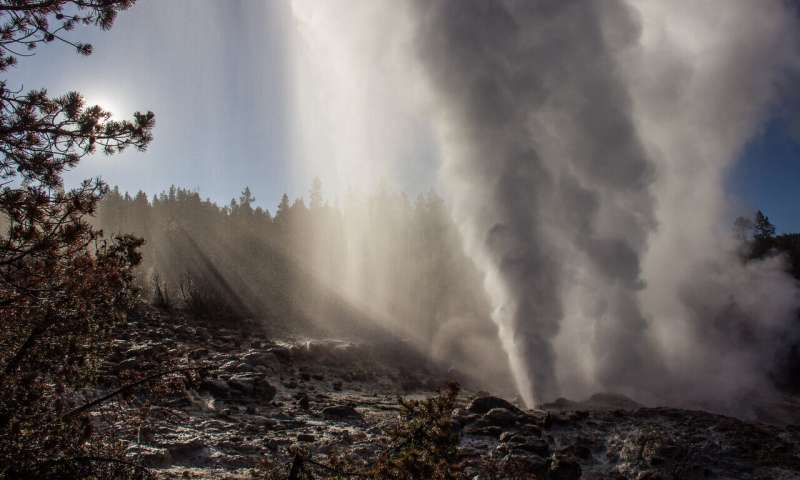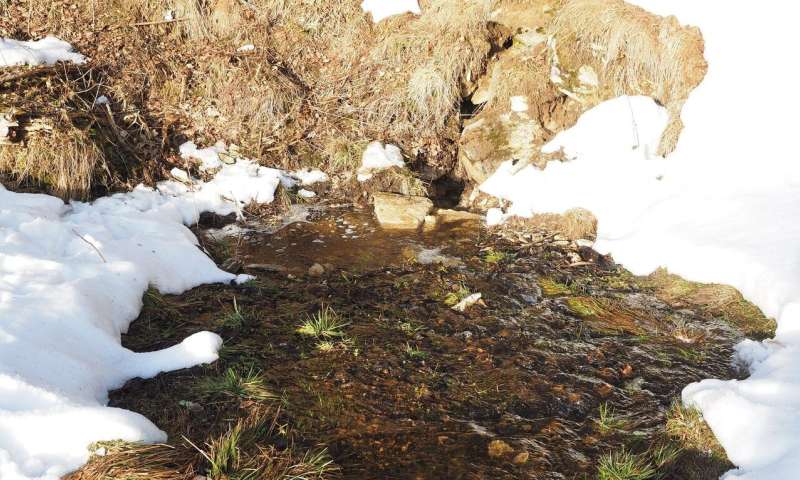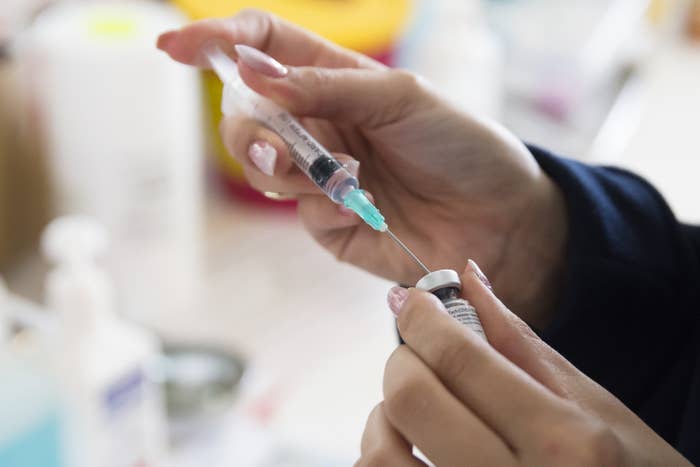Ga. election official: Trump spreading 'misinformation and disinformation'
JAN. 4, 2021
JAN. 4, 2021

Georgia election officials said President Donald Trump was trying to undermine faith in the system. Photo by Tami Chappell/UPI | License Photo
Jan. 4 (UPI) -- A Georgia election official said Monday that President Donald Trump and his lawyers were spreading "misinformation and disinformation" about the state's election tallies and trying to undermine faith in the system.
Gabriel Sterling, voting system implementation manager for Georgia's Secretary of State office, said in a news conference the president's efforts to overturn the results of the Georgia election were based on allegations that were "all easily, provably false."
He said the president's persistent claims "undermine Georgians' faith in the system. Especially Georgia Republicans."
Secretary of State Brad Raffensperger did not appear at the news conference, where Sterling discussed a phone call from Trump pressuring his office to "find 11,780 votes" to overturn the state's certified election results.
"The secretary of state wants you to know that your vote counts and your vote counted," Sterling said.
President-elect Joe Biden was certified as the winner of the election in Georgia after a recount and audit. Biden won the state's 16 electoral votes, with 306 votes overall, surpassing the 270 needed to win. Trump garnered 232.
Sterling disputed as false claims about illegal voting in Georgia, which he likened to "whack a mole" and "Groundhog's Day."
He said Trump's lawyers had made fraudulent claims, including that tens of thousands of votes allegedly cast by felons, underage voters, dead voters, unregistered voters, or voters registered to a P.O. box.
Sterling said election officials had followed up on every claim and found them all false.
"No one is changing parts or pieces of Dominion voting machines," Sterling said. "That's not real. That is not happening. I don't even know how to explain that."
RELATED 10 ex-U.S. defense chiefs warn Pentagon against interfering in election
Sterling said the facts were posted on the secretary of state's Securevotega.com, which crashed several times during his press conference.
On Tuesday, voters in Georgia will choose both U.S. senators in a runoff election that could swing control of the U.S. Senate from a Republican to a Democrat majority. The election pits GOP incumbent David Perdue against Democrat Jon Ossoff and Republican Kelly Loeffler against Democrat Raphael Warnock.
Trump and Vice President Mike Pence will appear at last-minute rallies in Georgia supporting Loeffler and Perdue, while Biden will address voters at an Atlanta rally for Democrats Ossoff and Warnock.
Trump called Raffensperger and the Georgia secretary of state's general counsel, Ryan Germany, last week and asked them to "find 11,780 votes."
Trump cited unfounded claims of fraud and tried to cajole the officials with threats of legal and political consequences.
"All I want to do is this: I just want to find 11,780 votes, which is one more than we have. Because we won the state," Trump said.
The recording of the phone call was published Sunday by the Washington Post and other news outlets.
Raffensperger and the attorney are heard on the call refusing Trump's demands.
"Well, Mr. President, the challenge that you have is, the data you have is wrong," Raffensperger told the president.
On Monday, two U.S. Congress members asked FBI Chief Christopher Wray to "open an immediate criminal investigation" of Trump's call. Ted Lieu, D-Calif., and Kathleen Rice, D-N.Y., accused Trump of election fraud and conspiracy to commit election crimes.
Sterling said the facts were posted on the secretary of state's Securevotega.com, which crashed several times during his press conference.
On Tuesday, voters in Georgia will choose both U.S. senators in a runoff election that could swing control of the U.S. Senate from a Republican to a Democrat majority. The election pits GOP incumbent David Perdue against Democrat Jon Ossoff and Republican Kelly Loeffler against Democrat Raphael Warnock.
Trump and Vice President Mike Pence will appear at last-minute rallies in Georgia supporting Loeffler and Perdue, while Biden will address voters at an Atlanta rally for Democrats Ossoff and Warnock.
Trump called Raffensperger and the Georgia secretary of state's general counsel, Ryan Germany, last week and asked them to "find 11,780 votes."
Trump cited unfounded claims of fraud and tried to cajole the officials with threats of legal and political consequences.
"All I want to do is this: I just want to find 11,780 votes, which is one more than we have. Because we won the state," Trump said.
The recording of the phone call was published Sunday by the Washington Post and other news outlets.
Raffensperger and the attorney are heard on the call refusing Trump's demands.
"Well, Mr. President, the challenge that you have is, the data you have is wrong," Raffensperger told the president.
On Monday, two U.S. Congress members asked FBI Chief Christopher Wray to "open an immediate criminal investigation" of Trump's call. Ted Lieu, D-Calif., and Kathleen Rice, D-N.Y., accused Trump of election fraud and conspiracy to commit election crimes.
Trump Begged And Threatened A Georgia Official To Change The Election Results During A Phone Call
"There's nothing wrong with saying, you know, um, that you’ve recalculated," the president said in an audio recording of the phone call obtained by the Washington Post
Ellie Hall BuzzFeed News Reporter
January 3, 2021

SAUL LOEB/AFP via Getty Images
President Donald Trump
President Donald Trump begged, berated, and threatened Georgia's top election official while asking him to overturn the election results in his favor, citing disproven statistics and conspiracy theories, in a rambling phone call Saturday, according to audio obtained by the Washington Post.
During the hourlong phone call, Trump pressured Georgia Secretary of State Brad Raffensperger to "find" him enough votes to overturn the election. At one point, the president even suggested that Raffensperger could face criminal charges if these nonexistent votes weren't found.
Trump's desperate phone call — which some legal experts described as "extortion" and "mob talk" — comes as a dozen Republic lawmakers, citing election irregularities, have said they will object to certifying Joe Biden's Electoral College win on Jan. 6. Trump has refused to accept the election results, engaging in largely futile legal efforts and endorsing his Republican allies' baseless attempts to undermine the electoral process. On Saturday, Vice President Mike Pence's chief of staff said that Pence "welcomes" the GOP senators' efforts to contest the election results, adding that he "shares the concerns of millions of Americans about voter fraud and irregularities in the last election."
“The people of Georgia are angry, the people in the country are angry, and there’s nothing wrong with saying, you know, um, that you’ve recalculated," Trump said on the call with Raffensperger and his office's general counsel, Ryan Germany, according to audio excerpts released by the Post and other media outlets on Sunday.
Following a recount, Biden was named the winner of Georgia's election in a narrow victory on Nov. 14. He won by 11,779 votes and is the first Democrat to win the state since 1992.
"So look. All I want to do is this. I just want to find 11,780 votes, which is one more than we have. Because we won the state," Trump said on the call.
White House chief of staff Mark Meadows and several conservative lawyers were also present on the call, the Post reported.
Throughout the call, Raffensperger, a Republican, pushed back against Trump's wild and unproven assertions about Biden's victory in Georgia and called out the president for citing blatantly false conspiracy theories about the state's voting process and postelection audit.
"Mr. President, the challenge that you have is, the data you have is wrong," Raffensperger said.
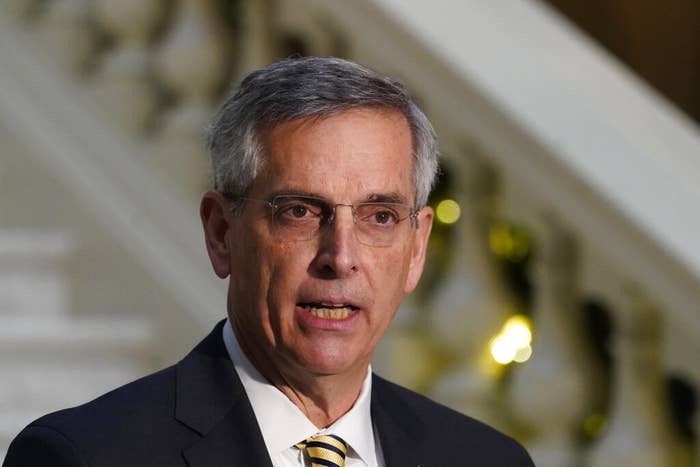
John Bazemore / AP
Georgia Secretary of State Brad Raffensperger
"There’s no way I lost Georgia,” Trump said on the call. "There’s no way. We won by hundreds of thousands of votes."
In an exchange with Ryan Germany, Raffensperger’s general counsel, Trump pushed the lawyer to validate the false conspiracy theory that Dominion Voting Systems, a company that provides hardware and software for ballot counting, somehow rigged the election.
“Do you think it’s possible that they shredded ballots in Fulton County? ’Cause that’s what the rumor is," Trump said. "And also that Dominion took out machines. That Dominion is really moving fast to get rid of their, uh, machinery. Do you know anything about that? Because that’s illegal.”
When Germany told the president that Dominion hadn't moved any machinery out of Fulton County, Trump then asked if the company had "moved the inner parts of the machines and replaced them with other parts."
"No," Germany said.
"Are you sure, Ryan?" Trump asked.
"I'm sure. I'm sure, Mr. President," Germany replied.
During the call, Trump suggested that Raffensperger could face criminal prosecution and that it was a "big risk" if he didn't do as Trump asked.
"You know what they did and you’re not reporting it," Trump said. "You know, that’s a criminal — that’s a criminal offense. And you know, you can’t let that happen. That’s a big risk to you and to Ryan, your lawyer. That’s a big risk."
Trump had earlier tweeted about the phone call with Raffensperger, saying that he was "unwilling, or unable, to answer questions such as the 'ballots under table' scam, ballot destruction, out of state 'voters', dead voters, and more. He has no clue!"
Raffensperger simply responded: "Respectfully, President Trump: What you're saying is not true. The truth will come out."
A senior adviser for Biden, Bob Bauer, told MSNBC, "We now have irrefutable proof of a president pressuring and threatening an official of his own party to get him to rescind a state's lawful, certified vote count and fabricate another in its place."
BuzzFeed News has reached out to the White House and the Georgia secretary of state's office for comment.
Soon after the Washington Post published its story — and the full hourlong audio and transcript of the call — elected officials began blasting Trump, with many saying that his actions merited criminal charges.
"Trump’s call pushing the GA Secretary of State to doctor the election outcome is an immoral attempt to manipulate the election and a potential criminal act," said Sen. Jeff Merkley, an Oregon Democrat.
"This disgraceful effort to intimidate an elected official into deliberately changing & misrepresenting the legally confirmed vote totals in his state strikes at the heart of our democracy and merits nothing less than a criminal investigation," Democratic Whip Sen. Dick Durbin said. "The President is unhinged and dangerous. Those who encourage and support his conduct, including my Senate colleagues, are putting the orderly and peaceful transition of power in our nation at risk."
On a press call, Rep. Alexandria Ocasio-Cortez called Trump's actions "an impeachable offense" and said "if it was up to me, there would be articles on the floor, quite quickly."
Former vice presidential candidate Sen. Tim Kaine, describing Trump as "a spoiled rich kid who's talking about our democracy like it's a real estate deal," said, "News flash to the current President: It's not a negotiation, it's an election. The voters decided — and you lost."
Georgia Rep. Hank Johnson described Trump's phone call as "a violation of state and federal law" and said that he would introduce a motion to censure Trump in the House on Monday.
Meanwhile, only a few members of the Republican party have publicly commented on the story so far.
"This is absolutely appalling," Republican Rep. Adam Kinzinger said. "To every member of Congress considering objecting to the election results, you cannot- in light of this- do so with a clean conscience."
GOP Sens. Ted Cruz and Josh Hawley, who are at the forefront of the Republican efforts to contest the election results, did not respond to a request for comment on Sunday.
"There's nothing wrong with saying, you know, um, that you’ve recalculated," the president said in an audio recording of the phone call obtained by the Washington Post
Rep. Alexandria Ocasio-Cortez called Trump's actions "an impeachable offense" and said "if it was up to me, there would be articles on the floor, quite quickly."
Ellie Hall BuzzFeed News Reporter
January 3, 2021

SAUL LOEB/AFP via Getty Images
President Donald Trump
President Donald Trump begged, berated, and threatened Georgia's top election official while asking him to overturn the election results in his favor, citing disproven statistics and conspiracy theories, in a rambling phone call Saturday, according to audio obtained by the Washington Post.
During the hourlong phone call, Trump pressured Georgia Secretary of State Brad Raffensperger to "find" him enough votes to overturn the election. At one point, the president even suggested that Raffensperger could face criminal charges if these nonexistent votes weren't found.
Trump's desperate phone call — which some legal experts described as "extortion" and "mob talk" — comes as a dozen Republic lawmakers, citing election irregularities, have said they will object to certifying Joe Biden's Electoral College win on Jan. 6. Trump has refused to accept the election results, engaging in largely futile legal efforts and endorsing his Republican allies' baseless attempts to undermine the electoral process. On Saturday, Vice President Mike Pence's chief of staff said that Pence "welcomes" the GOP senators' efforts to contest the election results, adding that he "shares the concerns of millions of Americans about voter fraud and irregularities in the last election."
“The people of Georgia are angry, the people in the country are angry, and there’s nothing wrong with saying, you know, um, that you’ve recalculated," Trump said on the call with Raffensperger and his office's general counsel, Ryan Germany, according to audio excerpts released by the Post and other media outlets on Sunday.
Following a recount, Biden was named the winner of Georgia's election in a narrow victory on Nov. 14. He won by 11,779 votes and is the first Democrat to win the state since 1992.
"So look. All I want to do is this. I just want to find 11,780 votes, which is one more than we have. Because we won the state," Trump said on the call.
White House chief of staff Mark Meadows and several conservative lawyers were also present on the call, the Post reported.
Throughout the call, Raffensperger, a Republican, pushed back against Trump's wild and unproven assertions about Biden's victory in Georgia and called out the president for citing blatantly false conspiracy theories about the state's voting process and postelection audit.
"Mr. President, the challenge that you have is, the data you have is wrong," Raffensperger said.

John Bazemore / AP
Georgia Secretary of State Brad Raffensperger
"There’s no way I lost Georgia,” Trump said on the call. "There’s no way. We won by hundreds of thousands of votes."
In an exchange with Ryan Germany, Raffensperger’s general counsel, Trump pushed the lawyer to validate the false conspiracy theory that Dominion Voting Systems, a company that provides hardware and software for ballot counting, somehow rigged the election.
“Do you think it’s possible that they shredded ballots in Fulton County? ’Cause that’s what the rumor is," Trump said. "And also that Dominion took out machines. That Dominion is really moving fast to get rid of their, uh, machinery. Do you know anything about that? Because that’s illegal.”
When Germany told the president that Dominion hadn't moved any machinery out of Fulton County, Trump then asked if the company had "moved the inner parts of the machines and replaced them with other parts."
"No," Germany said.
"Are you sure, Ryan?" Trump asked.
"I'm sure. I'm sure, Mr. President," Germany replied.
During the call, Trump suggested that Raffensperger could face criminal prosecution and that it was a "big risk" if he didn't do as Trump asked.
"You know what they did and you’re not reporting it," Trump said. "You know, that’s a criminal — that’s a criminal offense. And you know, you can’t let that happen. That’s a big risk to you and to Ryan, your lawyer. That’s a big risk."
Trump had earlier tweeted about the phone call with Raffensperger, saying that he was "unwilling, or unable, to answer questions such as the 'ballots under table' scam, ballot destruction, out of state 'voters', dead voters, and more. He has no clue!"
Raffensperger simply responded: "Respectfully, President Trump: What you're saying is not true. The truth will come out."
A senior adviser for Biden, Bob Bauer, told MSNBC, "We now have irrefutable proof of a president pressuring and threatening an official of his own party to get him to rescind a state's lawful, certified vote count and fabricate another in its place."
BuzzFeed News has reached out to the White House and the Georgia secretary of state's office for comment.
Soon after the Washington Post published its story — and the full hourlong audio and transcript of the call — elected officials began blasting Trump, with many saying that his actions merited criminal charges.
"Trump’s call pushing the GA Secretary of State to doctor the election outcome is an immoral attempt to manipulate the election and a potential criminal act," said Sen. Jeff Merkley, an Oregon Democrat.
"This disgraceful effort to intimidate an elected official into deliberately changing & misrepresenting the legally confirmed vote totals in his state strikes at the heart of our democracy and merits nothing less than a criminal investigation," Democratic Whip Sen. Dick Durbin said. "The President is unhinged and dangerous. Those who encourage and support his conduct, including my Senate colleagues, are putting the orderly and peaceful transition of power in our nation at risk."
On a press call, Rep. Alexandria Ocasio-Cortez called Trump's actions "an impeachable offense" and said "if it was up to me, there would be articles on the floor, quite quickly."
Former vice presidential candidate Sen. Tim Kaine, describing Trump as "a spoiled rich kid who's talking about our democracy like it's a real estate deal," said, "News flash to the current President: It's not a negotiation, it's an election. The voters decided — and you lost."
Georgia Rep. Hank Johnson described Trump's phone call as "a violation of state and federal law" and said that he would introduce a motion to censure Trump in the House on Monday.
Meanwhile, only a few members of the Republican party have publicly commented on the story so far.
"This is absolutely appalling," Republican Rep. Adam Kinzinger said. "To every member of Congress considering objecting to the election results, you cannot- in light of this- do so with a clean conscience."
GOP Sens. Ted Cruz and Josh Hawley, who are at the forefront of the Republican efforts to contest the election results, did not respond to a request for comment on Sunday.

